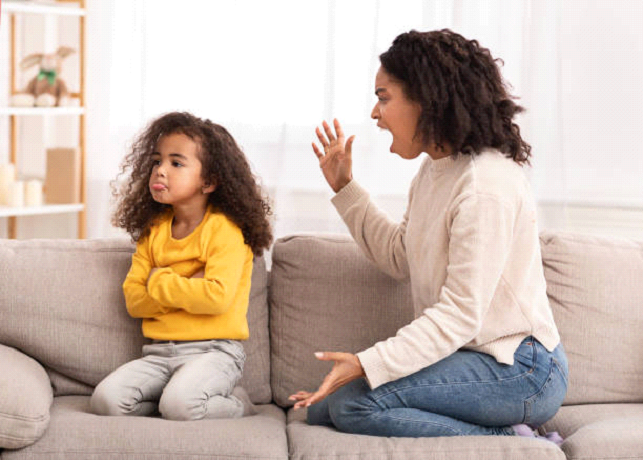It is common for parents to yell at their children for inappropriate behavior or bad behavior. Screaming can seriously damage the child's self-esteem, and that is why they should be avoided.
Although it is not given importance, regularly screaming at a child can cause a series of long-term damage on an emotional and psychological level.
Screaming as psychological abuse

Although it is hard to believe it at first, screaming is a type of psychological abuse for the child. Parents should remain calm at all times and avoid screaming as a result of inappropriate behavior from the child.
It is not necessary to go to such an extreme since the child suffers more than it may seem at first glance, with the cries of the parents. There is no use yelling at him for a few minutes to ask for forgiveness, since the damage is done.
The problem with screaming is that today it is well regarded from a social point of view. Nobody is surprised if they see a father yelling at his son. However, it has been found that screaming has a negative influence on children. The problems are various, either at the school level or in the child's own behavior
It is not necessary to go to such an extreme since the child suffers more than it may seem at first glance, with the cries of the parents. There is no use yelling at him for a few minutes to ask for forgiveness, since the damage is done.
The problem with screaming is that today it is well regarded from a social point of view. Nobody is surprised if they see a father yelling at his son. However, it has been found that screaming has a negative influence on children. The problems are various, either at the school level or in the child's own behavior
Consequences of yelling at children

It is normal that if a parent screams regularly and constantly, the little one sees his self-esteem and confidence undermined. This is going to lead to quite serious behavior problems. The screaming will leave serious emotional consequences, especially if it is something that happens very often.
It is not a good thing to grow up in a home where screaming is in daylight and is common. In the long run, the little one will believe that screaming is normal and can be used in their day to day life.
It is not a good thing to grow up in a home where screaming is in daylight and is common. In the long run, the little one will believe that screaming is normal and can be used in their day to day life.
Educate without shouting

Education must be based on communication and dialogue as well as instilling a series of values in the child. The use of yelling as a means of correcting children's behavior should be avoided at all times. Parents should not lose control at any time and remain calm. It is something that can seem quite complicated, especially if the child does not behave well or does not follow the rules.
You have to know how to stop the anger and opt for other more appropriate means of education. As we have already mentioned above, habitual screaming damages the self-esteem of the little ones, something that will have a negative impact on the development of their personality. Unfortunately, the patterns are repeated, and if a child grows up in a house where screaming is normal, it is almost certain that as an adult, they will educate their own children through screaming.
In short, you do not have to educate by shouting. They are considered as emotional abuse towards children. In the long term, these screams affect in a negative way both the behavior and the conduct of the smallest of the house.
You have to know how to stop the anger and opt for other more appropriate means of education. As we have already mentioned above, habitual screaming damages the self-esteem of the little ones, something that will have a negative impact on the development of their personality. Unfortunately, the patterns are repeated, and if a child grows up in a house where screaming is normal, it is almost certain that as an adult, they will educate their own children through screaming.
In short, you do not have to educate by shouting. They are considered as emotional abuse towards children. In the long term, these screams affect in a negative way both the behavior and the conduct of the smallest of the house.






